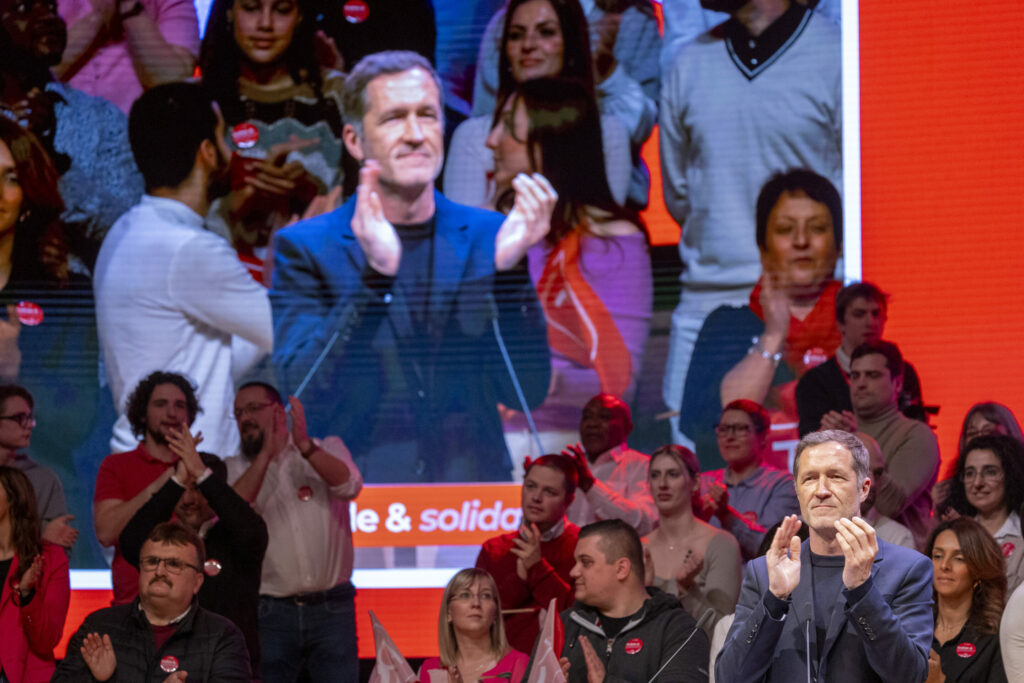The Francophone Socialist Party (PS) wants a 32-hour working week, without loss of pay and with compensatory recruitment, leader Paul Magnette said at the party's electoral congress in Brussels on Sunday.
While Magnette realises that the shorter working week will not happen overnight, he wants to make clear steps in the coming years. Employers and several political parties in Flanders already called the plan "unaffordable."
"The commitments we made five years ago have become reality. And I say it to the Walloons and people of Brussels, looking them straight in the eye: if you give us confidence, we will keep the promises we make today," Magnette said, marketing the PS as the party that keeps its promises.
"Ideally, we are talking about a four-day, 32-hour working week with no loss of pay and compensatory recruitment," Magnette said. "This will not be achieved overnight: we know that all the big battles have taken time. But we can and must take big steps in that direction in the coming years."
Flanders not in favour
Not long after Magnette's statements, several Flemish parties already rejected the proposal. Federal Finance Minister Vincent Van Peteghem (CD&V) pointed to the upcoming "enormous" budgetary challenges on VTM News. "I think it is important that we go to the elections with an honest story about these kinds of challenges," he said.
Former leader of the Flemish liberal Open VLD party Egbert Lachaert called the proposal "unaffordable madness." He added that there have been "many sympathetic pilot projects" like it in recent years, "with feel-good results after which the project has to be discarded because it cannot be financed."
"It is not popular, but addressing our challenges will not happen with less work," he said on social media.

MR leader Georges-Louis Bouchez (left) and Open VLD leader Egbert Lachaert. Credit: Belga/Kristof Van Accom
Meanwhile, leader of the Flemish rightwing N-VA party Bart De Wever also spoke out firmly against the idea. "While the cost of our social policy is moving towards unaffordability, a third of the active Walloon population does not work. Yet the PS advocates working less. This country needs just the opposite: a fairer social policy and to better reward working," he said on social media.
Bad signal or good idea?
For the country's largest employers' organisation, the Federation of Enterprises in Belgium (FEB), the proposal is "a bad signal," adding that "an increase in wage costs when companies' competitiveness is deteriorating is a bad signal."
"We are experiencing a labour shortage in the labour market. Companies are constantly looking for staff. So taking people off the job market simply does not make sense," the FEB said in a press release, pointing out that the proposal is not feasible from an organisational point of view, and that over 20 different measures already exist to reduce working time.
Still, the socialist trade union ABVV/FGTB is backing the PS's proposal and added that it would also benefit the employer. "It leads to more happy employees, with less pressure on them, which means that fewer people will drop out in burnout," ABVV/FGTB general secretary Miranda Ulens said on Flemish radio.
Related News
- Four-get about it: Few Belgians opt for shorter work week
- 'Stretching the work model': How to approach Belgium's four-day working week
- Four-day working week comes into effect. Who can use it and how to apply?
Additionally, it allows employers to cope better with the arrival of new technologies, such as artificial intelligence (AI), without making people redundant. "It is nonsense that employers are calling the 32-hour working week unrealistic. They have been saying for 100 years that it is not feasible. They said the same when we moved to the 40-hour week."
The current system, Ulens added, is not sustainable for workers. "We see that a lot of people are sick, and a lot of people – young and old – yearn for a better quality of life and do not only want to work. Everyone is asking for this."
When asked how the proposal can be made financially viable, she stressed that more than €1 billion flows from Belgium to tax havens per day. "That money can be used to implement positive policies and make wages better. I think people really need it. We need politicians who dare to do that."

